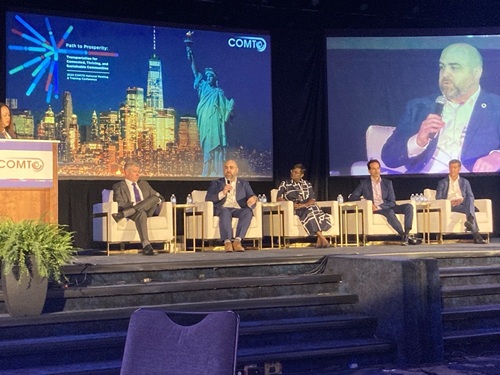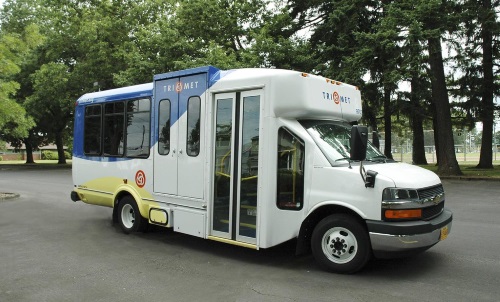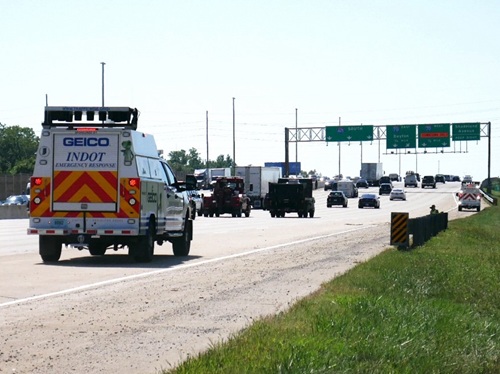The Federal Transit Administration announced grants selections totaling approximately $9.6 million for 37 medical transit projects on May 22, while also highlighting workforce training programs initiated by SunLine Transit Agency that’s preparing its employees to manage future technologies, such as all-electric buses.
[Above photo by TriMet.]
The FTA noted that its Access and Mobility Partnership grants are focused on developing transportation and technology solutions for users to reach medical appointments, access healthy food, and improve paratransit services.
The program emphasizes better coordination between health care providers and transit agencies, as well as technology improvements such as mobility-on-demand shared transportation services and smart phone apps for booking services, the agency noted in a statement.
Those grants also support the work of the inter-agency Coordinating Council on Access and Mobility, FTA added, which coordinates federal programs to improve access to jobs, schools, healthcare, and other opportunities. The grants will help bridge gaps between service providers in the transportation and health sectors.

Meanwhile, FTA Acting Administrator K. Jane Williams joined SunLine officials and other local partners at an event on May 21 to highlight transit workforce training for “innovative technologies of the future,” including hydrogen fuel cell and battery electric buses transit buses.
She noted that her agency has provided nearly $2 million in grant funding to help SunLine “develop and demonstrate” a comprehensive training program for the transit industry and to construct a state-of-the-art maintenance facility designed specifically for zero-emission buses.
SunLine said it expects to begin construction on its West Coast Center of Excellence in Zero Emission Technology early next year; a facility that represents a collaboration between numerous public and private organizations, including transit agencies, colleges, private industry, and government agencies that are involved in the development and maintenance of zero-emission buses.
“Workforce development is a key priority for this [the Trump] administration and the U.S. Department of Transportation,” FTA’s Williams noted in a statement. “The administration’s economic policies have created unprecedented opportunities for American workers and American jobs, especially as technology continues to transform the employment landscape.”

Workforce development is also a key priority for state departments of transportation, noted Carlos Braceras, the Utah Department of Transportation’s executive director and the 2018-2019 president for the American Association of State Highway and Transportation Officials.
“Workforce development a major topic and needs to be something we continue to emphasize,” he explained during the board of director’s session at AASHTO’s spring meeting May 23 in Park City, UT.
He added that the current robust American economy and low unemployment rate are making it difficult for state agencies to compete with the private sector for engineers, technicians, and information technology professionals.
“State DOTs must attract and keep these workers to build, maintain and manage America’s increasingly sophisticated transportation networks,” Braceras stressed.
 Nation
Nation


